yottabyte
description: a unit of digital information storage, equivalent to one septillion bytes
14 results
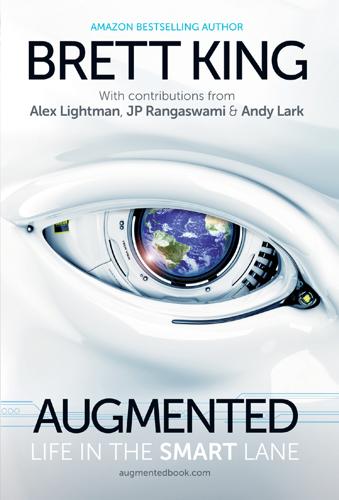
Augmented: Life in the Smart Lane
by
Brett King
Published 5 May 2016
Act of 1812 14 Or Alexei Arkhipovich Leonov 15 The He-178, a turbojet aircraft, flew a couple of years earlier in 1939, but was not a pure jet turbine aircraft. 16 Also known as the Soviet Union 17 Winston Churchill, “Sinews of Peace” address, 5th March 1946. 18 12th September 1962 19 There are 1 million gigabytes (GB) in a petabyte. An exabyte (EB) is 1024 petabytes, a zettabyte (ZB) is 1024 exabytes and a yottabyte (YB)—named after the Star Wars character Yoda—is 1024 zettabytes. 20 Statistics from the Library of Congress 21 According to Google Books software engineer Leonid Taycher, the actual figure was 129,864,880 books as of 2010. 22 Allowing for an average of 1 megabyte (MB) equivalent of storage required for each book, and accounting for approximately 9 zettabytes of content generated in 2014, we get the above figures. 23 “Michelle Phan: From YouTube Star to $84 Million Startup Founder,” Re/code, 27 October 2014. 24 You can check it out at http://www.businessinsider.com.au/chart-of-the-day-smartphones-us-saturation-2013-1. 25 Kate Dreyer, “Mobile Internet Usage Skyrockets in Past 4 Years to Overtake Desktop as Most Used Digital Platform,” comScore, 13 April 2015. 26 “Your Phone Loses Value Pretty Fast,” Priceonomics, February 2012. 27 Jeff Desjardins, “The Market has no bite without FANG stocks,” Visual Capitalist, 20 November 2015, http://www.visualcapitalist.com/the-market-has-no-bite-without-the-fang-stocks-chart/. 28 4.7 per cent in the United States and 8.6 per cent in the United Kingdom by 2014 29 Author’s own analysis from Business Insider, LinkedIn raw data/sources 30 Erik Brynjolfsson and Andrew McAfee.
…
An Augmented Age infused with technology advancements is better than the alternative by a wide margin. The Augmented Age will give us the greatest advantages and potential of any generation in the entire history of humanity, but only if we embrace change, transformation and innovation. Get ready for Life in the Smart Lane! ____________ 1 A yottabyte is one septillion bytes. In 2015 terms, the storage cost would be approximately US$100 trillion but, by 2030, it would equate to less than US$100 billion of today’s dollars. Given the role in health care that such data will play, this sort of storage space will be affordable and necessary. 2 Steve Kroft, “Falling Apart: America’s Neglected Infrastructure,” CBS News, November 2014. 3 “France warns climate change threatens global security,” Associated Press, 30 May 2015; http://www.salon.com/2015/05/30/ap_interview_france_warns_climate_change_threatens_security/.
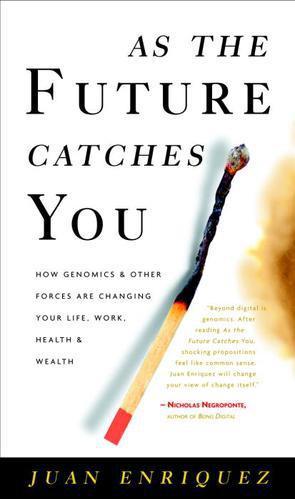
As the Future Catches You: How Genomics & Other Forces Are Changing Your Work, Health & Wealth
by
Juan Enriquez
Published 15 Feb 2001
THE HEART OF CELERA … IS THE WORLD’S LARGEST PRIVATE SUPERCOMPUTER … FED 24 HOURS A DAY … BY SEQUENCING ROBOTS … AND CREATED-PROGRAMMED-CONTROLLED … BY A DOZEN GREAT MINDS. Celera’s computers can already amass 1.3 teraflops of data, but soon this will increase a thousandfold to a slightly obscene-sounding “petabyte” of storage space … A petabyte is 1,000 trillion bits (1s and 0s) … Of course, after petabytes come exabytes, zettabytes, and yottabytes. (What is it with these guys—did they use Dr. Seuss as a consultant?) According to a U.C. Berkeley study, the entire world’s print and electronic media is producing about 1.5 exabytes worth of data per year (i.e., 500 billion U.S. photocopies, 610 billion global e-mails, 7.5 quadrillion minutes of phone conversations, etc.).

Clear Your Clutter With Feng Shui
by
Karen Kingston
Published 31 Aug 1998
We’re not even talking terabytes (TB)—one terabyte being the equivalent of about 50,000 trees made into paper and printed. Or petabytes (PB)—200 petabytes representing approximately all the printed material on Earth. We’ve even exceeded exabytes (EB), which is 1,000 petabytes. Annual global Internet traffic is now measured in zettabytes (ZB), which is 1,000 exabytes. Beyond that is yottabytes (YB), and probably there will soon be a new unit called something like squiggabytes (SB?). The point I am making here is that there is a lot of information in the world. It’s on the same scale as what Douglas Adams says about space in his introduction to The Hitchhiker’s Guide to the Galaxy: “Space is big.
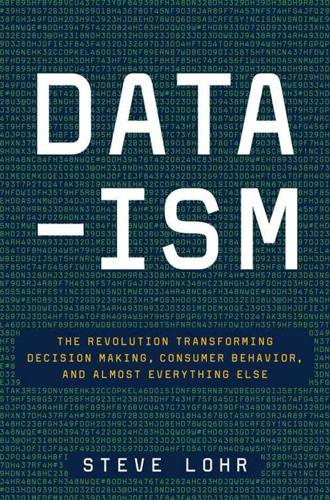
Data-Ism: The Revolution Transforming Decision Making, Consumer Behavior, and Almost Everything Else
by
Steve Lohr
Published 10 Mar 2015
The data surge just keeps rising, about doubling in volume every two years. But I would argue that the most exaggerated—and often least important—aspect of big data is the “big.” The global data count becomes a kind of nerd’s parlor game of estimates and projections, an excursion into the linguistic backwater of zettabytes, yottabytes, and brontobytes. The numbers and their equivalents are impressive. Ninety percent of all of the data in history, by one estimate, was created in the last two years. In 2014, International Data Corporation estimated the data universe at 4.4 zettabytes, which is 4.4 trillion gigabytes. That volume of information, the research firm said, straining for perspective, would fill enough slender iPad Air tablets to create a stack more than 157,000 miles high, or two thirds of the way to the moon.
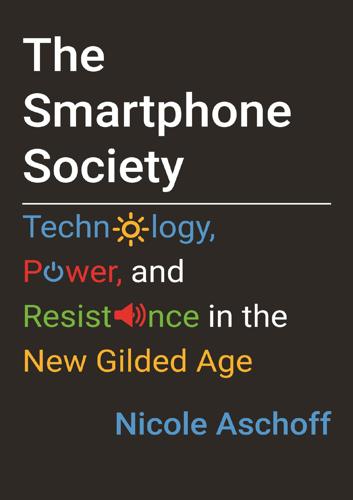
The Smartphone Society
by
Nicole Aschoff
With the extension of the internet to more spheres of life, combined with the dramatically increased processing power and storage capacity of computers, and the democratization of machine learning through easy-to-use open-source software packages, we are generating, saving, and processing an unfathomably large amount of data.52 The data is so vast that we resort to made-up-sounding words to describe and predict it—exabytes, zettabytes, yottabytes. The quantity of the data, much more than its quality or the algorithms used to process it (though many are quite powerful), has many observers seeing an endless horizon of profitability and innovation. Data is now valuable. What was once viewed as frivolous and useless has become valuable. Two big-data experts, Victor Mayer-Schönberger and Kenneth Cukier, argue: “Although data has long been valuable, it was either seen as ancillary to the core operations of running a business, or limited to relatively narrow categories such as intellectual property or personal information.
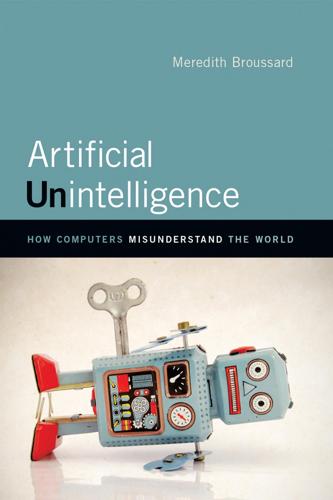
Artificial Unintelligence: How Computers Misunderstand the World
by
Meredith Broussard
Published 19 Apr 2018
These data points would not show up on a video conference because the video camera, which captures images as pixels in a grid, doesn’t have the hardware capacity to capture and show these very small variations. The video would be displayed on a computer screen, which is also constrained by hardware. The screen has a fixed resolution and refresh rate. It only allows your eyes to take in a finite amount of information. By contrast, your optic nerve is taking in yottabytes of information and processing it every moment. You get better information from the high-resolution world. As screens have become higher in resolution, video conferencing has become more popular. However, there is still a hierarchy. An email is effective like a postcard is effective—but a five-minute phone call is better than a two-page email because of the additional texture and complexity and information that you get from intonation and from the sheer fact of connecting and communicating with the person.
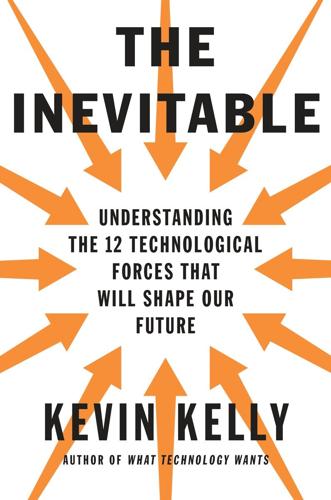
The Inevitable: Understanding the 12 Technological Forces That Will Shape Our Future
by
Kevin Kelly
Published 6 Jun 2016
Exabytes are the current planetary scale. We’ll probably reach zetta in a few years. Yotta is the last scientific term for which we have an official measure of magnitude. Bigger than yotta is blank. Until now, any more than a yotta was a fantasy not deserving an official name. But we’ll be flinging around yottabytes in two decades or so. For anything beyond yotta, I propose we use the single term “zillion”—a flexible notation to cover any and all new magnitudes at this scale. Large quantities of something can transform the nature of those somethings. More is different. Computer scientist J. Storrs Hall writes: “If there is enough of something, it is possible, indeed not unusual, for it to have properties not exhibited at all in small, isolated examples.
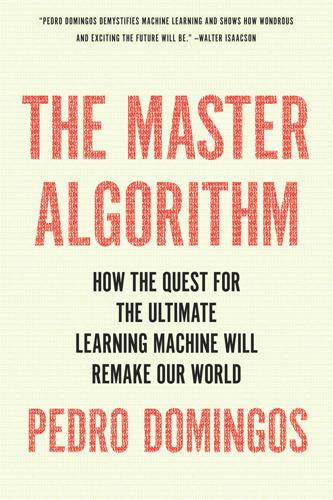
The Master Algorithm: How the Quest for the Ultimate Learning Machine Will Remake Our World
by
Pedro Domingos
Published 21 Sep 2015
Well, the number of possible answers is two for each question, so for two questions it’s two times two (yes-yes, yes-no, no-yes, and no-no), for three questions it’s two cubed (2 × 2 × 2 = 23), and for a thousand questions it’s two raised to the power of a thousand (21000). The trillion records in your database are one-gazillionth of 1 percent of 21000, where “gazillionth” means “zero point 286 zeros followed by 1.” Bottom line: no matter how much data you have—tera- or peta- or exa- or zetta- or yottabytes—you’ve basically seen nothing. The chances that the new case you need to make a decision on is already in the database are so vanishingly small that, without generalization, you won’t even get off the ground. If this all sounds a bit abstract, suppose you’re a major e-mail provider, and you need to label each incoming e-mail as spam or not spam.
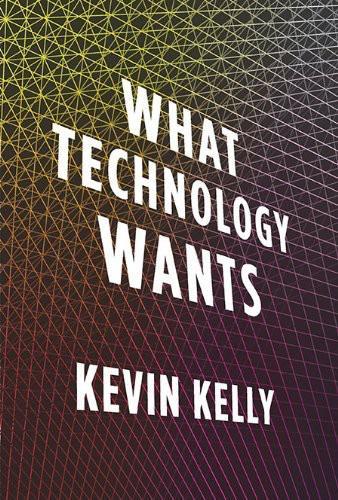
What Technology Wants
by
Kevin Kelly
Published 14 Jul 2010
One study estimated the Earth harbored 1030 single-cell microbes. A typical microbe, such as a yeast, produces one one-bit mutation per generation, which means one bit of unique information for every organism alive. Counting the microbes alone (about 50 percent of the biomass), the biosphere today contains 1030 bits, or 1029 bytes, or 10,000 yottabytes of genetic information. That’s a lot. And that is only the biological information. The technium is awash in its own ocean of information. It reflects 8,000 years of embedded human knowledge. Measured by the amount of digital storage in use, the technium today contains 487 exabytes (1020) of information, many orders smaller than nature’s total, but growing exponentially.
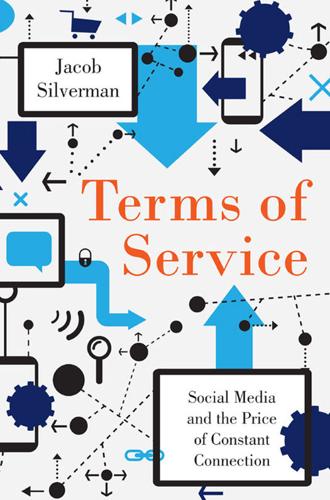
Terms of Service: Social Media and the Price of Constant Connection
by
Jacob Silverman
Published 17 Mar 2015
The NSA recently opened a $2 billion data center in Utah, a facility designed to help crack previously unbreakable encryption methods and to store and mine the billions of e-mails, phone calls, and other electronic communications that the NSA sucks up around the world. The data center is designed to handle a yottabyte—1 septillion bytes—or more of data. That’s hundreds of times more information than passes through the Internet each year; it’s vastly more than the sum of all human knowledge. In short, the data-capture and -mining ambitions of the U.S. intelligence apparatus are boundless. Already the NSA is able to record and sort all phone calls in several countries in real time.
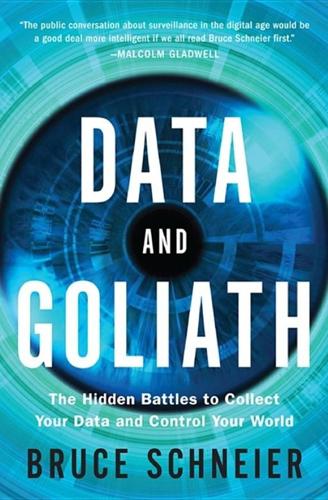
Data and Goliath: The Hidden Battles to Collect Your Data and Control Your World
by
Bruce Schneier
Published 2 Mar 2015
That big backup drive you might have purchased with it can probably store two or three terabytes. Your corporate network might have one thousand times that: a petabyte. There are names for bigger numbers. A thousand petabytes is an exabyte (a billion billion bytes), a thousand exabytes is a zettabyte, and a thousand zettabytes is a yottabyte. To put it in human terms, an exabyte of data is 500 billion pages of text. All of our data exhaust adds up. By 2010, we as a species were creating more data per day than we did from the beginning of time until 2003. By 2015, 76 exabytes of data will travel across the Internet every year. As we start thinking of all this data, it’s easy to dismiss concerns about its retention and use based on the assumption that there’s simply too much of it to save, and in any case it would be too hard to sift through for nuggets of meaningful information.
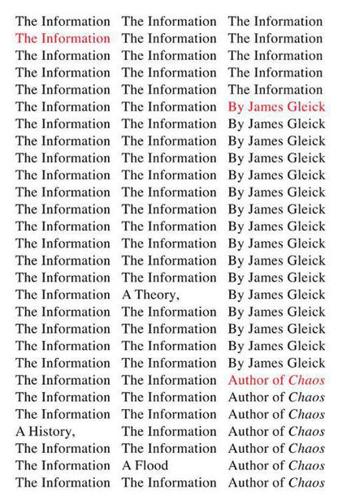
The Information: A History, a Theory, a Flood
by
James Gleick
Published 1 Mar 2011
In the order of things as worked out by international standards committees, mega- led to giga-, tera-, peta-, and exa-, drawn from Greek, though with less and less linguistic fidelity. That was enough, for everything measured, until 1991, when the need was seen for the zettabyte (1,000,000,000,000,000,000,000) and the inadvertently comic sounding yottabyte (1,000,000,000,000, 000,000,000,000). In this climb up the exponential ladder information left other gauges behind. Money, for example, is scarce by comparison. After kilobucks, there were megabucks and gigabucks, and people can joke about inflation leading to terabucks, but all the money in the world, all the wealth amassed by all the generations of humanity, does not amount to a petabuck.
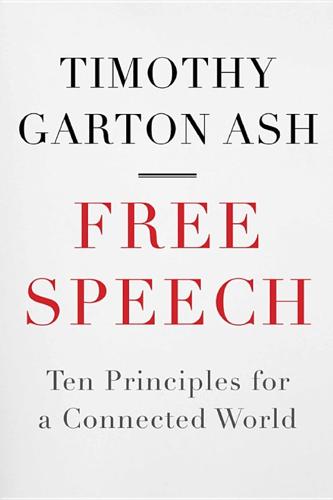
Free Speech: Ten Principles for a Connected World
by
Timothy Garton Ash
Published 23 May 2016
New words must be coined to describe the number of bytes—the basic unit of digital memory, usually consisting of an ‘octet’ string of eight 1s and 0s—of information stored online: from the megabytes (MB, or 1,0002 bytes) and gigabytes (GB, or 1,0003 bytes) we have on our personal computers, all the way to the exabyte, zettabyte and yottabyte, or 1,000,000,000,000,000,000,000,000 individual bytes.23 According to an estimate by Cisco, it would take you about 6 million years to watch all the videos crossing global networks in a single month.24 As of 2015, there are already somewhere around 3 billion internet users, depending exactly how you define internet and user, and that number is growing rapidly.25 The fastest growth will come in the non-Western world, in wireless rather than wired and especially on mobile devices.
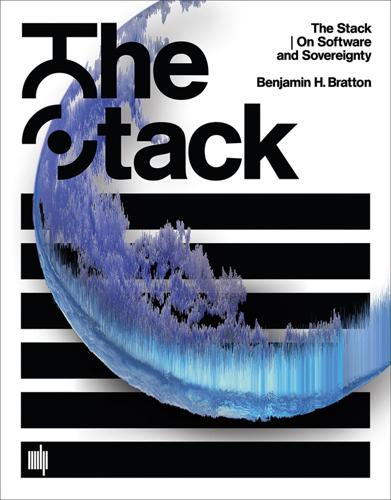
The Stack: On Software and Sovereignty
by
Benjamin H. Bratton
Published 19 Feb 2016
Where Turing's artificial intelligence test attempted to detect machine intelligence by testing its reflection in human cognition, projects like Bell's suggest capture of the totality of autobiographical experience by couching it within a personal universal Turing machine and so (as the research was for Microsoft) to prototype the sorts of data management, visualization, semantic sorting, editing, and indexing interfaces necessary for the yottabyte-fluent absolute User to come? Of course, in that future, part of what would be recorded are her sessions during which she plays back past experiences, which would then also be available for review later on, and so on, and so on, a mirror held up to a mirror, reflecting up into the darkness.19 The phenomenology of metadata would be overwhelming.